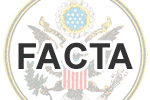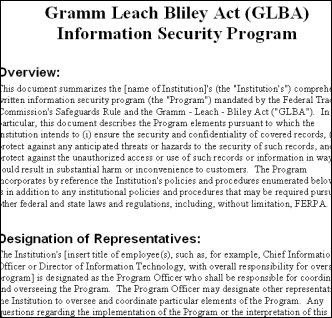Why is paper shredding so important?
Paper shredding is important to every U.S. business for the simple reason of Liability. Personal information of your clients or personnel can be stolen and used by those you least expect, resulting in identity theft, the fastest growing white collar crime in the world today.
FACTA
 As an employer, what you don’t know about FACTA can definitely hurt you.
As an employer, what you don’t know about FACTA can definitely hurt you.
FACTA stands for Fair and Accurate Credit Transaction Act. FACTA is the law which allows any American access to their credit report once per year. The law went into effect Jan. 1, 2005. So what does that mean for you as an employer?
On June 1, 2005, a new provision of FACTA goes into effect. It says that any employer (even if you only employ one person, and you have their personal information so that you can pay social security taxes,) whose action or inaction results in the loss of employee information, can be fined by federal and state government, and sued in civil court.
A USA Today article on FACTA from Jan. 14. 2005, stated “Bet you didn't know that.” But you need to know, and need to know what you can do to protect yourself.
See a video regarding FACTA and how it can affect you!
More information on FACTA
Gramm-Leach-Bliley Act
 The Financial Modernization Act of 1999, also known as the "Gramm-Leach-Bliley Act" or GLB Act, includes provisions to protect consumers’ personal financial information held by financial institutions. There are three principal parts to the privacy requirements: the Financial Privacy Rule, Safeguards Rule and pretexting provisions.
The Financial Modernization Act of 1999, also known as the "Gramm-Leach-Bliley Act" or GLB Act, includes provisions to protect consumers’ personal financial information held by financial institutions. There are three principal parts to the privacy requirements: the Financial Privacy Rule, Safeguards Rule and pretexting provisions.
The GLB Act gives authority to eight federal agencies and the states to administer and enforce the Financial Privacy Rule and the Safeguards Rule. These two regulations apply to "financial institutions," which include not only banks, securities firms, and insurance companies, but also companies providing many other types of financial products and services to consumers. Among these services are lending, brokering or servicing any type of consumer loan, transferring or safeguarding money, preparing individual tax returns, providing financial advice or credit counseling, providing residential real estate settlement services, collecting consumer debts and an array of other activities. Such non-traditional "financial institutions" are regulated by the FTC.
For more information on the provisions of this law and your obligations, click here
Call us today to find out how Shred-Ex can help protect your business.

